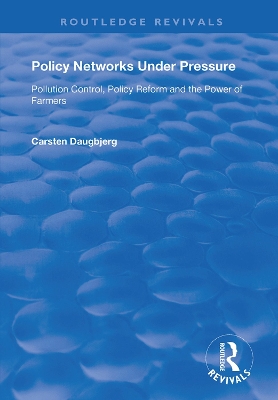Routledge Revivals
1 total work
First published in 1998, this book examines how established policy networks and the broader context within which they are embedded influence the choice of policy when change has been put on the agenda. It criticises the existing network literature for being predominantly descriptive, for having little to say on the choice of policy and for omitting the analysis of the broader political structures which have consequences for meso-level policy making. In order to reinforce the explanatory power of policy network analysis, the book develops both a meso and a macro-level theoretical model. They help to explain why policy change is more radical in some settings than in others. The theoretical arguments are tested by the use of detailed comparisons of agri-environmental policy making in Denmark and Sweden and of agricultural policy reforms in the European Union and Sweden.
